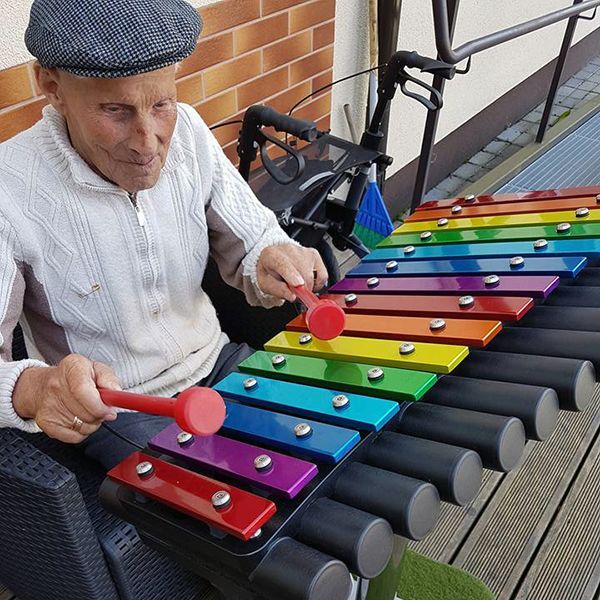Kids' Brains on Music [Infographic]
We all know that playing music is fun but have you ever considered how much it affects children's brains? Music has the potential to unlock a huge variety of skills in children without them even realising it. This infographic looks at the most important things that music can teach kids.
Music secretly develops language and communication, memory, numeracy and social skills. All the while, the children playing music are doing just that: playing and having fun. This double hit of fun and learning makes music one of the greatest learning experiences there is.
Let's take a deeper look at the positive impact of music.

Kids Brains on music Music is hugely important for children. Not just because it's fun, but because it encourages a very special kind of learning. Just like language, music is learned by participating. It's a social experience that offers so much more than meets the eye (or the ear in this case). So what's going on in children's brains when they make music?

Language The similarities between language and music are so numerous that it's not unwise to consider them one and the same. Both music and language follow structure, require sensitivity to pitch and dynamics, and work in rhythm (think syllables rather than musical beats). They're both learned in a similar way - by participating! Research suggests that the early exploration of sounds, rhythms and musical education boots children's brain response to consonants, suggesting a heightened sensitivity to speech sounds.

Motor Skills Moving to music, as simple and natural as it seems, is a complex process of movements and microscopic adjustments to keep balance. Dancing is good for the body, the mind and the spirit. Hitting a drum, playing a note and even just clapping develop the neural pathways that help to refine motor skills. Plucking strings and playing keys improve muscle memory, dexterity and strength.

Social Learning and Friendship Working together towards a common goal is a great way to make friends - in fact, studies have demonstrated that pairs of eight-year old children taking part in cooperative rhythmic tasks had a enhanced sense of affinity and closeness. Playing music together requires cooperation and respect for one another. 14 month old babies are more likely to show helping behaviours towards adults they've bounced along with in synchrony. Music has a demonstrable ability to bring people together.

Counting All music is mathematics and physics working together. Even without realising it, when playing music, you're producing some of the most complex waveforms and mathematical functions in the universe. Rhythms and metre, cadence and cues: counting is a big part of music, even if it's just counting a beat. Music develops the foundations for understanding more complex mathematics.

Intuition Playing music and performing prepare the mind better for the unexpected. Being able to anticipate a change in a song requires a great deals of awareness of your surroundings and helps develop adaption and improvisation (AKA quick thinking!). Of course, a lot of this can be put down to experience and referred to simply as anticipation rather than intuition - but a heightened sense of awareness is required to be able to read your situation adequately and to respond appropriately.

Confidence Music is a great confidence builder that allows children (and adults too) to express themselves and feel free to do so. It's one of the harder life skills to develop, but one of the most important. Confidence can only be coaxed out in a free, open, rewarding and encouraging environment. Music provides an excellent framework for personal growth.

